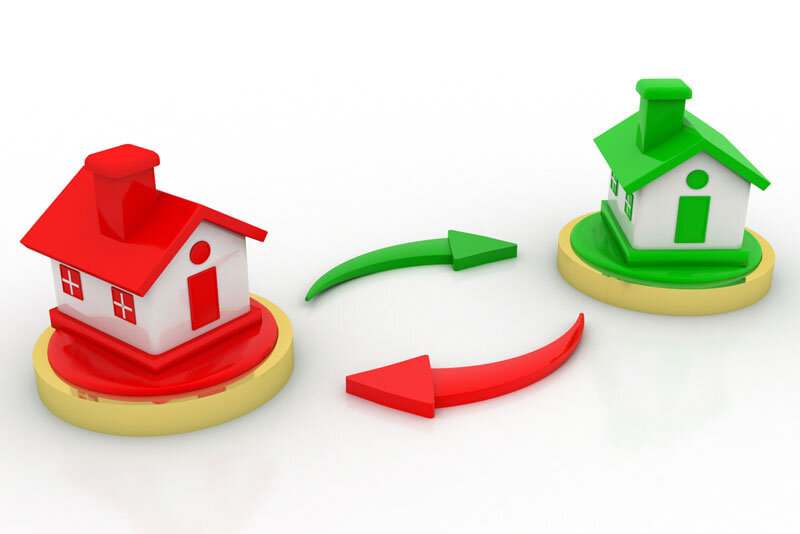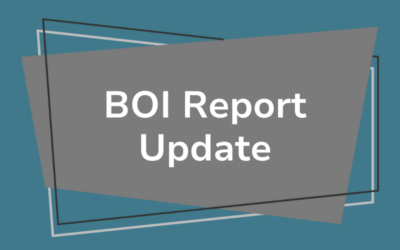If you’re a property owner, you probably know how a like-kind exchange works, but in case the term is new to you, here’s what you need to know.
According to the Internal Revenue Service (IRS), a like-kind exchange (also called a 1031 exchange) is:
When you exchange real property used for business or held as an investment solely for other business or investment property that is the same type or like-kind.
The 1031 exchange, named for Section 1031 of the U.S. Internal Revenue Code, permits a property seller to avoid paying capital gains taxes on a property sale when the seller reinvests the sale earnings within a specific time frame in a “like-kind” property of equal or greater value.
In general, what qualifies as a like-kind exchange, has more to do with the property’s nature or character, not if they differ in grade or quality, according to the IRS.
For business owners, that means if you sell your building and/or land and then spend the proceeds on a like property, you are not required to accept a gain or loss under IRS Code Section 1031. Without having to recognize a capital gain, the business’s investment can grow tax-deferred for as long as the owner continues to swap properties under like-kind exchange rules.
Examples of Like-Kind Exchanges
An example of a like-kind exchange would include selling one apartment building and buying another apartment building. It doesn’t matter what state the apartment building is in.
Section 1031 is also allowed if a business owner wants to sell a commercial building to buy a residential property—and vice versa. However, a like-kind exchange is specifically for investment property and does not apply to primary residences.
In addition, selling property in the U.S. and then buying property outside of the U.S. is also not acceptable for tax deferment under Section 1031. Another detail to know is that per the Tax Cuts and Jobs Act, like-kind exchanges are only applicable for the selling and buying of real property, not personal or intellectual property.
How Do Like-Kind Exchanges Work?
To ensure you avoid taxes on a 1031 exchange, make sure you follow the correct steps within the deadlines imposed under like-kind exchange rules.
Step 1: Sell a Property
Sell the investment property and receive the proceeds (capital gains). After the sale, if you intend to purchase another investment property to avoid paying taxes, you must hand over the capital gains to a 1031 qualified intermediary (also called a 1031 accommodator).
There are several types of intermediaries available to help you with the 1031 exchange. Before you hand over your money to one of these intermediaries, you need to understand what each can do for you and how they differ.
- A 1031 exchange firm specializes in like-kind exchanges and can guide you through the process.
- A 1031 exchange intermediary may offer other financial planning services as well as 1031 exchanges.
- A 1031 exchange marketplace is just what it sounds like, a platform that lists investment properties for sale so investors can complete a 1031 exchange.
Step 2: Buy a Property
Next, the seller (now buyer) has 45 days from the date of the sale to identify a like-kind property to replace the previous property. This is known as the “identification period.” Once the property has been identified, the buyer is responsible for sending an official letter or notice to the qualified intermediary with the potential property’s information.
The buyer now negotiates with the replacement property’s owner and agrees on a sale price.
From this point, the intermediary has 180 days to complete the transaction, including using the capital gains to purchase the replacement property and transfer the deed into the buyer’s name. Expect to pay fees between $750 and $1,000 for each 1031 exchange to the intermediary.
Step 3: File With the IRS
Finally, all like-kind exchanges must be filed on IRS Form 8824 in the same tax year the property was transferred.
The Reverse Exchange
A “reverse exchange” takes place when the replacement property is acquired before transferring the previous property’s title to the new owner. In this scenario, the qualified intermediary acts as an Exchange Accommodation Titleholder (EAT), which acquires and holds the replacement property in a separate special purpose entity.
The Exchanger has 45 days after the EAT’s acquisition of the replacement property to identify the property that’s being sold and then an additional 180 days to complete the transaction.
Like-Kind Exchanges for Business Owners
If, in addition to owning your business, you also own the building and/or the land, a 1031 exchange allows you to sell that building or land without having to pay the capital gains tax at the time of sale. As long as you keep exchanging properties, you can avoid paying capital gains taxes indefinitely—or at least until the final sale.
In addition, like-kind exchanges can also be carried out at the entity level. Per the IRS, all taxpaying entities (sole proprietors, C Corporations, S Corporations, partnerships, Limited Liability Companies [LLCs]) are allowed to set up an exchange of business or investment properties for business or investment properties under Section 1031.
But what happens if not all owners of the business are in agreement about selling the property and initiating a like-kind exchange? That’s not a dealbreaker.
The company can do a “drop and swap” transaction as a workaround. In that case, the owners/partners who do not want to be involved in the exchange drop their names from the ownership of the property. It is recommended that this action takes place at least a year from the exchange to avoid an IRS audit.
A Like-Kind Alternative
Another alternative to the like-kind exchange is to donate the property to a nonprofit organization. The property owner can make a direct gift by transferring the deed or title. The donor would then receive a tax deduction equal to the fair market value of the property and avoids paying any capital gains tax.
For business owners looking for more investment opportunities, the 1031 exchange is a smart way to defer federal taxes and continue to improve the business’s assets.
As always, CorpNet is here to help answer any of your questions.
References and Sources:





